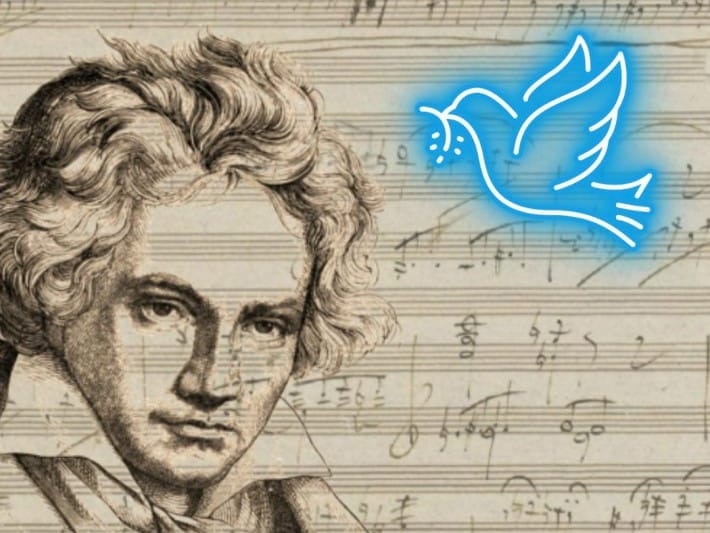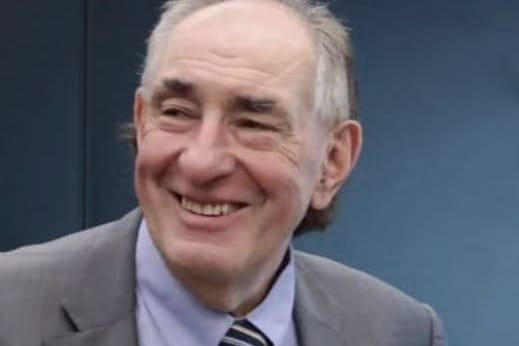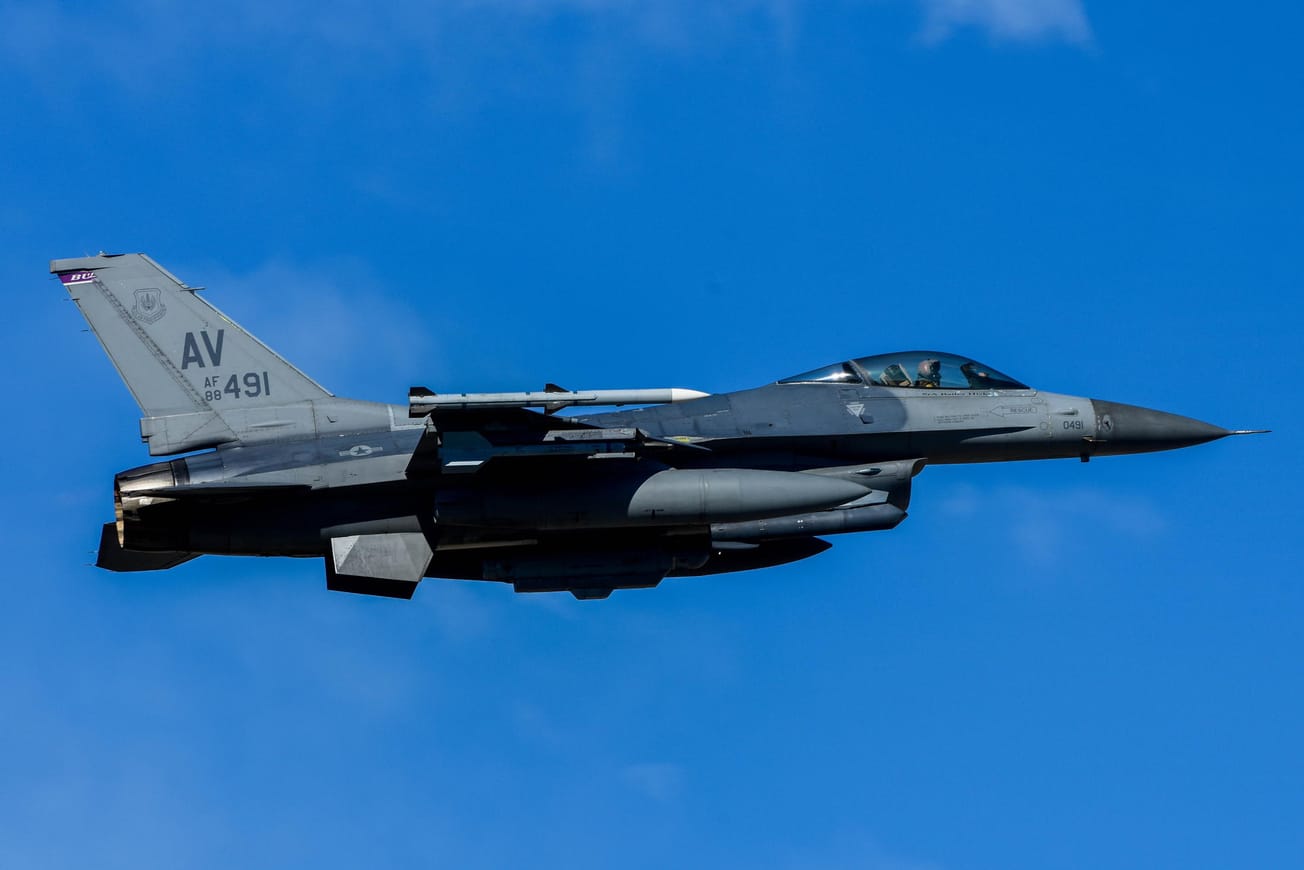Report on the 49th consecutive weekly meeting of the International Peace Coalition, May 10, 2024
Helga Zepp-LaRouche, founder of the Schiller Institute, opened the proceedings with a discussion of the acute danger of the escalating war in Ukraine, highlighting the insane provocations of French President Emmanuel Macron, British Foreign Secretary David Cameron, and U.S. House Minority Leader Hakeem Jeffries. In response, Russian President Vladimir Putin has announced maneuvers of tactical nuclear weapons. Zepp-LaRouche emphasized that the claim that Putin will launch a general invasion of Eastern Europe, should Russia win in Ukraine, is entirely without foundation; on December 17, 2021, Putin had demanded security guarantees, and that continues to be what he wants.
Mrs. Zepp-LaRouche continued with an update on the situation in Gaza: 100,000 out of 1.3 million refugees have been relocated from Rafah. Some have been relocated as many as eight times, are starving and have no medical supplies. Zepp-LaRouche described the negotiations process as an “incredibly cynical game,” where Hamas was promised a permanent ceasefire, but that has now been redefined with “not a dot at the end, but a comma.” In other words, once the hostages are freed, the war can continue.
In contrast, she reported on a recent successful Schiller Institute seminar in Copenhagen, where the Oasis Plan was discussed with diplomats and ambassadors. “If the Oasis Plan were realized, it can be the first stepping stone for the new paradigm,” she said. Even the “City of London mouthpiece,” The Economist, now admits, in the words of its editor-in-chief, that “the old order is dying. Its sudden collapse could be sudden and irreversible.”
Col. Richard H. Black (ret.), former head of the U.S. Army’s Criminal Law Division at the Pentagon and a former Virginia State Senator, insisted that the Russian nuclear maneuvers are not saber-rattling, not a bluff. “It’s actually a reminder of a very cold reality … the West is playing a game of chicken on the world’s most dangerous nuclear playground,” he said. The U.S. sabotaged the Nord Stream pipelines in September 2022, which has damaged the entire European economy. Ukraine apparently orchestrated the terror attack on the Crocus City Hall concert in Moscow, this year. But these actions come from desperation. “Today, Ukraine’s lines are trembling. The White House knows that this is happening, but they will not permit this war to end before the November elections.” Black warned that “NATO boots on the ground in Ukraine will be considered legitimate targets” by Russia and could mean retaliation against NATO targets on Russian territory. That “may presage the outbreak of World War III.”
Former United States Marine Corps intelligence officer and United Nations Special Commission weapons inspector Scott Ritter opened his remarks by saying, “We have a situation where classic deterrence is failing. NATO and the United States have articulated a strategy for the strategic defeat of Russia.” Russia will never allow that to happen, Ritter warned. Russia has warned the collective West that Russia will not tolerate an intervention in Ukraine. Russia doesn’t believe in a limited nuclear exchange. Today’s Western “strategists” cut their teeth in the 1990s, in Russian studies programs designed for exploiting the post-Soviet nation. As a result, they are committed only to erroneous “policies which will cross Russia’s red lines.”
Following Ritter’s presentation, there was a short colloquy with Helga Zepp-LaRouche. Ritter in his conclusion had proposed that a “New Yalta” and a “New Potsdam” conference be convened on the respective February and July 80th anniversaries of each in 2025. These conferences would involve experts from the United States, Russia, and many other nations, “to talk about post-conflict resolution between Russia and Ukraine, where Europe and Russia can begin talking about reconciliation in a post-Ukraine environment.” Zepp-LaRouche responded that “I just think that this idea of having a new international conference to discuss how to live together on the planet is the most important.” She spoke about her proposal to develop a new security and development architecture “on the model of the (1644-1648) Peace of Westphalia.
Prof. Steve Starr, director of the University of Missouri’s Clinical Laboratory Science Program and a senior scientist at the Physicians for Social Responsibility, followed. “I get the impression that the political elite in the West are like my students coming in, who know virtually nothing about nuclear war.” Adding that “the Western media have become an echo chamber for official narratives,” he reviewed some of the laughable claims about the Ukraine war which have been relayed to the public with a straight face. Since World War II, Russia and the U.S. have fought only proxy wars; but that changed with Ukraine’s attacks on targets within Russia. Starr presented an extensive list of provocative NATO actions, including the fact that “NATO is building the largest military base in Europe in Romania.” The Russians are acutely aware of all of it. “We have a leadership, at least in the United States, that is bent on starting a war with Russia,” Starr said, and concluded by reviewing the grim reality of thermonuclear warfare which he has presented in previous meetings.
Dr. Chandra Muzzaffar of Malaysia, President of the International Movement for a Just World (JUST) argued that the West has not shared with its own people that the real intention of the Ukraine war is the annihilation of Russia. Russia views the Ukraine war as an existential threat. He stressed that the efforts of the IPC, which has been meeting consistently for the past year, have now become a major factor in the world strategic situation. “That we have sustained this dialogue for so long, that is a great achievement. And I think we can reach out to various groups, on the Russian side, one the side of the West—both sides will have to realize the danger that faces us. I cannot think of a moment in our history when we have come as close to Armageddon, a total destruction. I think we are at that point. And we don’t have much time.”
Sian Bloor, an organizer for the Workers Party U.K., reported on George Galloway’s February 29 victory in a by-election for Parliament. Galloway, running as an independent for the small party, won more votes than the Labour, Conservative and Liberal Party candidates combined, shocking Britain’s entire political establishment. (Even more shocking, the runner up was a car repair shop owner “without any political views” who also defeated all the main parties.) The fact that Galloway represents a small party, and the runner-up was an independent, shows the disaffection in the U.K. electorate with Ms. Bloor described as the “uniparty” or “duopoly,” the Labour and Conservative parties: “You can’t get a cigarette paper between them. As George [Galloway] regularly says, they are two cheeks of the same backside.” Her presentation concluded with a brief exchange between Bloor and New York independent Congressional candidate Jose Vega, who is campaigning for the Bronx seat held by Ritchie Torres, author of a bill to suppress college students and faculty who seek to stop the destruction of Gaza.
Italian nuclear engineer Vincenzo Romanello, founder of Atomi per la Pace (Atoms for Peace), warned that, in addition to the horrors of nuclear war described by Dr. Starr, the worst part of the story would be the resultant radioactive fallout, followed by nuclear winter, that no one would survive. On the other hand, we have the technologies for desalination that will make the Oasis Plan a success.
Father Harry Bury of Pax Christi spoke passionately about the need to “spread the word” about the Oasis Plan everywhere. He lamented how few people are advocating it, and demanded that the IPC find a way to immediately remedy this. We learned from the First World War that by punishing Germany, we brought Hitler to power, but by helping the vanquished nations after World War II, we laid the foundation for peace. He compared the Oasis Plan to the Marshall Plan, and concluded by saying, “We need to work hard to help every nation to develop.”
This was followed by a live report from Diego Machuca López and Fernando Garzón, who were participating in a demonstration for Gaza in Guayaquil, Ecuador.
In her concluding remarks, Zepp-LaRouche said, “If the elites would know what they are playing with, they wouldn’t do it. One of the most important weapons, in the metaphorical sense, is to be exactly informed about what is going on strategically,” she said, and encouraged participants to try a free introductory subscription to the EIR Daily Alert. Both Zepp-LaRouche and moderator Dennis Speed called attention to the great conductor and pianist Daniel Barenboim’s essay on Beethoven and the Ninth Symphony, which he first conducted on May 7, 1824. “There is goodness in the universe, and that will prevail,” Zepp-LaRouche said.






